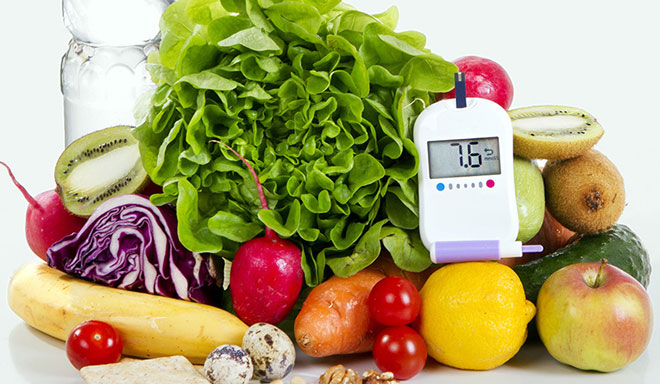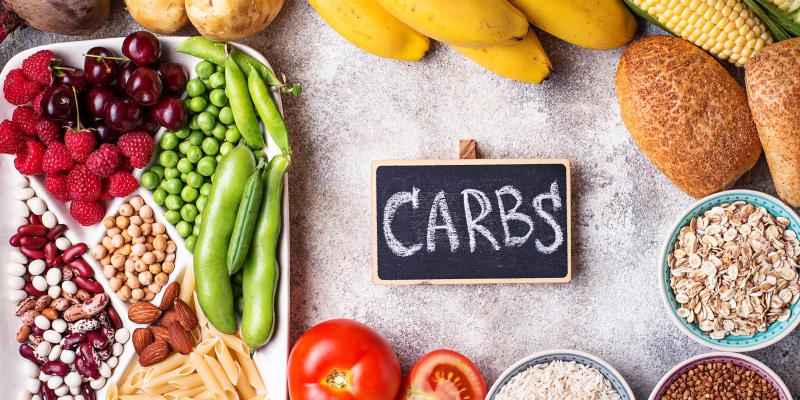Carbohydrates (carbs) are a macronutrient that is a basic component of human food. Carbs play a huge role in diabetes control, as their breakdown in the digestive system causes blood sugar levels to rise. And diabetes control is directly related to blood sugar control.
According to Master, Resident Doctor Dao Thi Thu, Department of Nephrology - Urology, Bach Mai Hospital, it is important to note that there is no general diabetes treatment plan for everyone. When you understand more about carbohydrates and diabetes, it will help doctors and patients come up with a plan that is suitable for their body and lifestyle.

Carbohydrates play a huge role in diabetes control.
1. What foods contain carbs?
There are three types of carbohydrates: sugars, starches, and fiber. If you're counting carbohydrates, pay attention to the total carbohydrates listed on the nutrition label, which is the sum of all three types.
Here are some foods that get their calories primarily from carbohydrates (some also contain protein and fat):
- Grains: Bread, cereal, pasta, rice, cornbread, crackers, oatmeal, whole grain cereals.
- Legumes: Lentils, beans, peas.
- Starchy vegetables: Potatoes, corn.
- Non-starchy vegetables: All other vegetables (e.g. green beans, tomatoes, lettuce, carrots, asparagus, cauliflower, broccoli, spinach, kale, beets, etc.).
- Fruits and fruit juices.
- Dairy products: Milk, yogurt.
- Drinks with added sugar: regular soda, fruit juice, fruit juice cocktails.
- Sweets: Ice cream, candy, baked goods.
2. The relationship between carbs, insulin and blood sugar
When you eat foods that contain carbs, the carbs are broken down into glucose (sugar), which enters the bloodstream, raising blood sugar levels. This signals the pancreas to release insulin. Insulin then moves sugar from the blood into the cells to be used for energy. Blood sugar levels then drop. The same process happens again the next time you eat.

Carbs cause blood sugar levels to rise, controlling your carb intake also helps control blood sugar levels.
When you have diabetes, your body doesn't use insulin properly, making it difficult to regulate blood sugar. Because carbohydrates cause blood sugar to rise, controlling your carb intake also helps control your blood sugar.
Although there are three types of carbohydrates: sugar, fiber, and starch, they are not digested the same way.
Non-starchy vegetables are mostly fiber and have little or no sugar, so they don't spike blood sugar levels too much and therefore don't require as much insulin release. So eat non-starchy vegetables.
In contrast, fruit juice, soda, and refined grains (such as white pasta, rice, or bread) contain little or no fiber, so they spike blood sugar and release more insulin.
3. How many carbs are suitable for people with diabetes?
Studies have shown that different levels of carb intake can help control blood sugar, and the optimal amount of carbs will vary from person to person. So there is no one-size-fits-all answer to how many carbs you can eat and stay within your target blood sugar range. The amount you can eat and stay within your target blood sugar range depends on your age, weight, activity level, and many other factors.
The American Diabetes Association used to recommend that people with diabetes get about 45% of their calories from carbs. However, the American Diabetes Association now recommends a personalized approach, in which the ideal carb intake should take into account each person’s dietary preferences and metabolic goals. The key is to eat the amount of carbs that feels best to you and can realistically sustain over the long term.
Note that counting carbs goes hand in hand with counting calories, which come from three nutrients: carbohydrates, protein, and fat, also known as macronutrients. Vitamins and minerals are micronutrients and have no calories.
How to convert grams of carbohydrates to calories
Calculation: Carbohydrates have 4 calories per gram so multiply the number of grams of carbohydrates by 4.
Example: 35.5g carbohydrates x 4 = 142 calories
Calculate how much carbohydrates, protein, and fat you can eat at meals and snacks throughout the day to keep your blood sugar stable.
Many experts recommend getting 45%-65% of your daily calories from carbohydrates. As such, people with diabetes should aim to get half of their daily calories from carbohydrates. For example, if you consume 1,800 calories a day, you should aim for 900 calories of carbohydrates per day.
However, it is important to note that this varies significantly between individuals based on how many calories they need to eat to maintain a healthy weight. Patients should consult a dietitian or doctor to determine how many carbohydrates they should eat each day.
Source: https://giadinh.suckhoedoisong.vn/nguoi-benh-dai-thao-duong-can-chu-y-gi-ve-luong-carbs-nen-an-moi-ngay-172240905160956921.htm





































































































Comment (0)